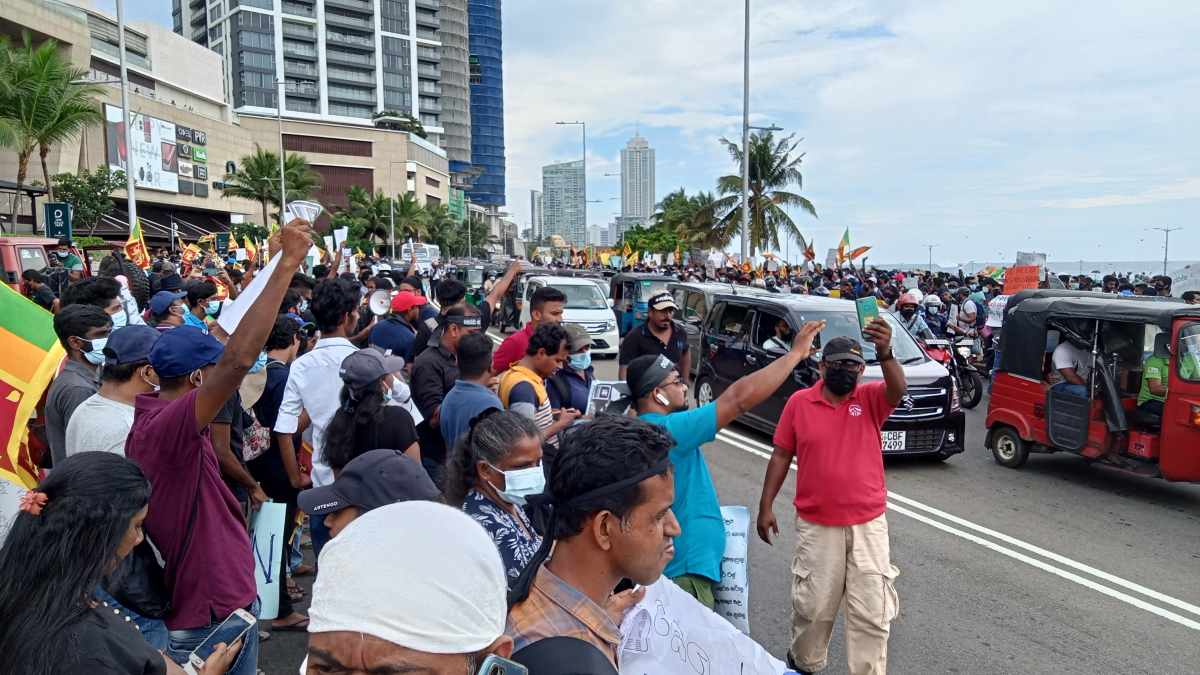The ongoing economic crisis in Sri Lanka has toppled the government of former President Gotabaya Rajapaksha, who has now fled the country for the Maldives, leaving the island nation hours before he was supposed to step down. Apart from the political chaos, protests and violence have ensued in the country as Sri Lanka’s economy has been left in a debt crisis by faulty decisions taken by consecutive governments.
The president fleeing the country has left the Prime Minister (PM) in charge of presidential duties, and discussion for a bailout from the International Monetary Fund (IMF) now lies in disarray.
A meltdown of Sri Lanka’s economy
Sri Lanka has now declared a state of emergency as protestors braved tear gas to storm Prime Minister Ranil Wickremesinghe’s Colombo residence demanding his resignation. The PM has ordered the country’s military and police to ‘do what is necessary to restore order’, even as reports emerged of shots being fired at the PM’s residence in Colombo.
Over the weekend, the parliament speaker had said ex-President Rajapaksha would step down after violent protestors stormed the president’s official residence, an incident well documented over social media and the rest of the internet. Anti-government protestors and disgruntled youth of the country are angry due to power blackouts, shortage of basic goods and rising consumer prices, and had demanded the resignation of Rajapaksha for months.
While inflation was the catalyst for the unravelling of Sri Lanka’s economy, several experts have opined that it was the political failure that led to the country going bankrupt. We previously covered the problems faced by Sri Lanka’s economy and how the country is facing a shortage of foreign currency and in turn a shortage of basic goods.
In 2019, the Rajapaksa government cut taxes in the country to keep up with election promises. S&P Global Ratings and Fitch Ratings were quick to downgrade the country saying the tax cuts undermined the country’s fiscal and debt sustainability.
Soon after, the Covid-19 pandemic hit the country and brought normal life to a standstill, wrecking Sri Lanka’s lucrative travel and tourism industry which contributes more than 10% to the GDP. The country’s economy contracted by a record 3.6% in 2020.
Additionally, the country banned the use of fertilizers in agriculture which hit the plantations of tea, Sri Lanka’s biggest export item. On the other hand, the pandemic severely curtailed foreign remittances to Sri Lanka and brought tourism to a standstill.
China has a big share in Sri Lanka’s debt crisis and is owed billions of dollars which the island nation will be unable to pay. Beijing had previously taken a stake worth $14 bn in the Port City of Colombo (PCC).
Japan and India have lent Sri Lanka money over the years, but PM Wickremesinghe said that the interest rate on Chinese debt is much higher. The two countries are now pushing the IMF to treat China just like other creditors of the country.
“The conversations with India, China are going to be at the level of the debt restructuring,” Shanta Devarajan, an economic adviser to the Sri Lankan government, told Bloomberg. “There are discussions with Japan about the possibility of bridge financing and possibly with China as well.”
Coming back to the bailout talks, a lack of a constitutional government may create problems for negotiations. The IMF said it is monitoring the situation in the country and plans to continue negotiations with the Central Bank of Sri Lanka and Finance Ministry bureaucrats. Sri Lanka must submit a plan for reducing its existing debt, which once approved by the IMF will be taken to bondholders and considered during restructuring talks.
It seems unlikely that problems for Sri Lanka will end anytime soon, as June inflation hit a record 54.6% with expectations that the figure will hit 60% soon.


 Australia
Australia China
China India
India Indonesia
Indonesia Japan
Japan Malaysia
Malaysia Philippines
Philippines Singapore
Singapore South Korea
South Korea Taiwan
Taiwan Thailand
Thailand Vietnam
Vietnam







